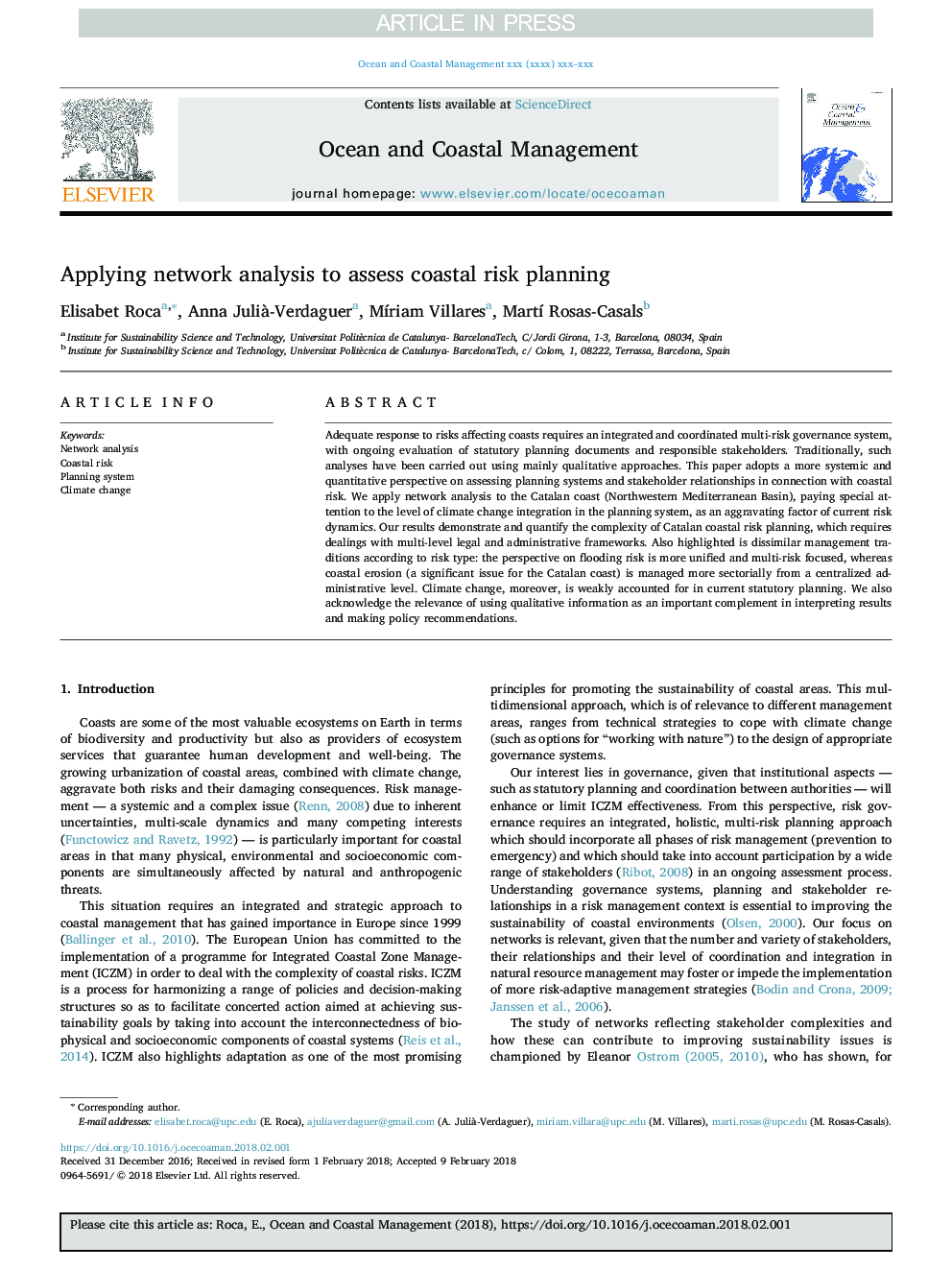| Article ID | Journal | Published Year | Pages | File Type |
|---|---|---|---|---|
| 8060588 | Ocean & Coastal Management | 2018 | 10 Pages |
Abstract
Adequate response to risks affecting coasts requires an integrated and coordinated multi-risk governance system, with ongoing evaluation of statutory planning documents and responsible stakeholders. Traditionally, such analyses have been carried out using mainly qualitative approaches. This paper adopts a more systemic and quantitative perspective on assessing planning systems and stakeholder relationships in connection with coastal risk. We apply network analysis to the Catalan coast (Northwestern Mediterranean Basin), paying special attention to the level of climate change integration in the planning system, as an aggravating factor of current risk dynamics. Our results demonstrate and quantify the complexity of Catalan coastal risk planning, which requires dealings with multi-level legal and administrative frameworks. Also highlighted is dissimilar management traditions according to risk type: the perspective on flooding risk is more unified and multi-risk focused, whereas coastal erosion (a significant issue for the Catalan coast) is managed more sectorially from a centralized administrative level. Climate change, moreover, is weakly accounted for in current statutory planning. We also acknowledge the relevance of using qualitative information as an important complement in interpreting results and making policy recommendations.
Related Topics
Physical Sciences and Engineering
Earth and Planetary Sciences
Oceanography
Authors
Elisabet Roca, Anna Julià -Verdaguer, MÃriam Villares, Martà Rosas-Casals,
